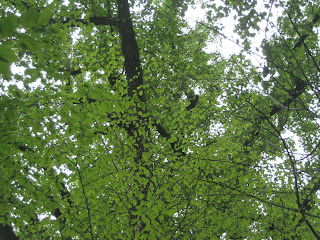The following is something I would like to start doing regularly, and that is writing summaries of events centered around Buddhism that are happening around the world, along with news of prominent Buddhists and everyday laypeople. In addition to selecting interesting articles, I will also try to choose pieces that discuss pervasive human problems and how people are trying to solve them in the context of Buddhism. Buddhism is an ancient religion, but it is also very much alive and relevant today. By writing these posts, I hope to show how very true that is.
The first few articles in this month's post are from February 2012 onwards, the rest having been written in May 2012. I am certain that I have probably not included all important events, but I think the articles below are a good sampling of current Buddhist happenings around the world. I welcome you to browse the linked articles below and read what interests you most. Enjoy!
***** 1. 35 Hindu and Buddhist statues in Maldives destroyed by extremist group A story from February describing the destruction of priceless Buddhist and Hindu artifacts in a Maldives museum. The article is from The Buddhist Channel.
2. Mindful eating as food for thought A February article from the New York Times about mindful eating practices. The article is accompanied by a slide show.
3. South Korea: Ven. Pomnyun's work for the humanitarian crisis in North Korea An April New York Times article recounting how Ven. Pomnyun first came face to face with the suffering in North Korea, and what he is doing now to help alleviate it. This article also discusses the criticism the Venerable has encountered because of his activism.
4. Lama Lobtsul of the Palri Pema Od Ling Tibetan Buddhist Temple in Austin, TX An account of the duties of Tibetan Buddhist Lama Lobtsul at this temple that houses a rare statue of Guru Rinpoche. The article also gives an account of Lama Lobtsul's life as he was growing up, and how he would practice his faith in secret because of the political situation in China at the time. The article is from the New York Times.
5. South Korea: monks resign after poker scandal Monks behaving badly! Some Buddhist monks in South Korea were caught on video tape gambling, smoking, and drinking alcohol. There will no doubt be follow-ups to this article as the story unfolds.
6. Wesak celebrations in Kuantan, Malaysia This article about a Wesak celebration in Malaysia mentions the name of a blessed Venerable, Ven. Sik Ji Xing, whom I have had the pleasure to meet in person during my grad years at Purdue University. This article is from the Malaysian newspaper, The Star.
7. Stupa and Buddha statue discovered in Uppugundur, A.P., India A really interesting archeological find in Andhra Pradesh, India, the state where my husband is from. Article is from the Indian newspaper, The Hindu.
8. Dalai Lama alleges there is a Chinese plot to assassinate him The the Dalai Lama's account of an assassination plot devised by the Chinese government, and the reaction from Chinese officials. Article is from The Telegraph.
9. Dalai Lama receives $1.7 million from prestigious Templeton Prize, donates to charity An article from BBC detailing the fourteenth Dalai Lama's donation of the entire $1.7 million USD awarded by the Templeton Prize to Save the Children in India and the Minds and Life Institute.
10. Buddhist encyclopedia published in city of Elista, Kalmykia, Russia Article from the Indian newspaper, The Hindu about a Buddhist encyclopedia funded by the Indian Embassy in the Kalmykia region of Russia. It seems that numerous temples have been built in predominately Buddhist regions of Buryatia, Kalmykia, and Tuva. Tuva is also home to the largest Buddha statue in Russia. Who knew?!
11. Islamic design rules imposed on all buildings, including Kelantan Buddhist Association building in Kelantan, Malaysia Controversial building codes are imposed on every business and public organization in the northern state of Kelantan, Malaysia. This article is from the Indonesian newspaper, The Jakarta Post.
12. Opinion response to imposed rules on buildings in Kelantan, Malaysia Response to imposed building codes in the Malaysian newspaper 'The Star'
13. Sri Lankan Buddhist monk visits Mesa, Arizona Press release of Sri Lankan Buddhist monk Dhammagavesi's visit to the Arizona International Buddhist Meditation Center.
14. Video: Novice monks in Seoul, South Korea play soccer to celebrate the Buddha's birthday Endearing Reuters video of young South Korean novice monks playing soccer together during Wesak.
15. NGO alleges Buddhist heritage sites in North India are in a state of neglect It seems that important Buddhist sites in the north Indian states of Bihar, Punjab, Rajastan, and Uttar Pradesh have been underfunded and otherwise mismanaged, and thus have fallen into disrepair. This article from The Hindu also mentions that Bodh Gaya, where the Buddha attained enlightenment, needs attention as well.
16. Europe's biggest Buddhist temple to open near Paris UPI reports that this $20 million temple and cultural center will open on June 22nd at Bussey-Saint-Georges, and will have space for 1000 worshippers. The temple also includes 40 bedrooms for people on spiritual retreats, extra rooms for activities such as calligraphy, and a vegetarian restaurant. Oh, and a 16 foot, 8 ton statue of the Buddha, carved from white jade which originated from a mountain in Myanmar!
*****
As always, please share your thoughts about whatever interested you most in the comments. Also please let me know if I missed something important this month by providing the title of the article. I will google it and include it here, with credit to you! :) Finally, if you are reading this at a later date, please inform me of any dead links, since some newspapers only post articles for a short time before archiving them. Thank you so much!
May all beings be happy!









